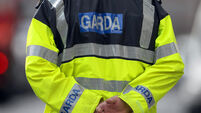Concerns about quality of garda training
THERE was one case in the Guerin report that didn’t get any publicity, despite its seriousness.
Unlike most of the cases complained about by Sergeant Maurice McCabe, Guerin said the case didn’t warrant further investigation, mainly because the victim didn’t want to pursue it.
















